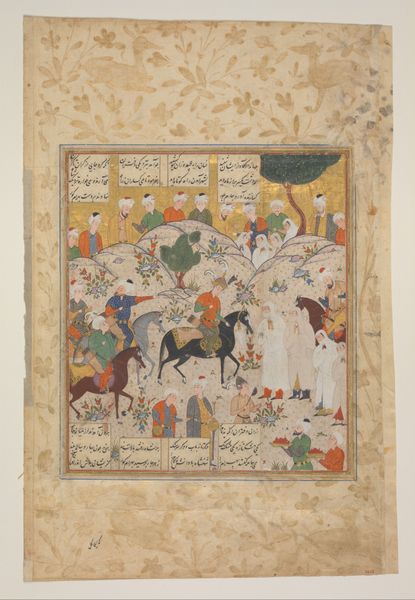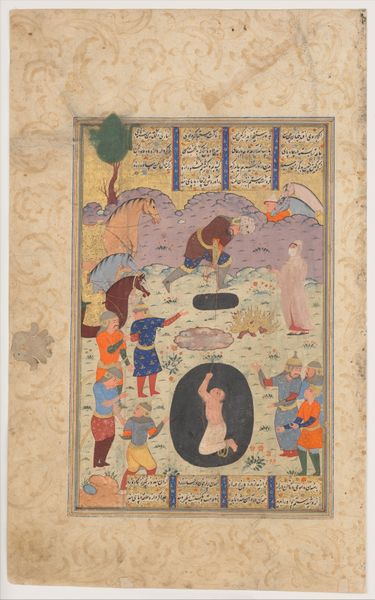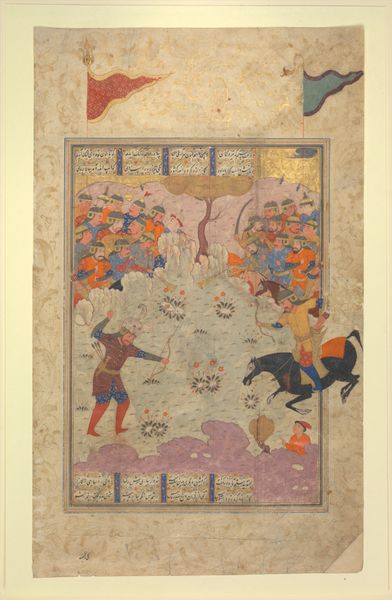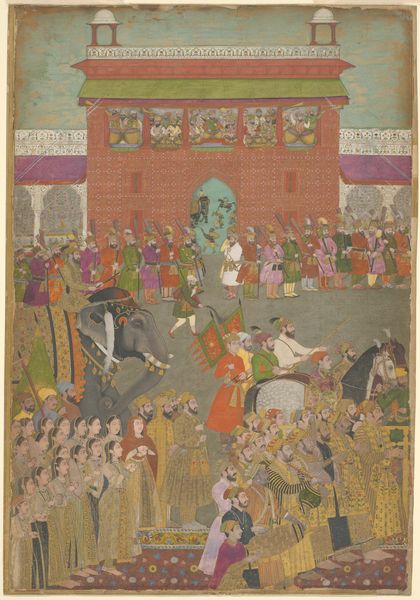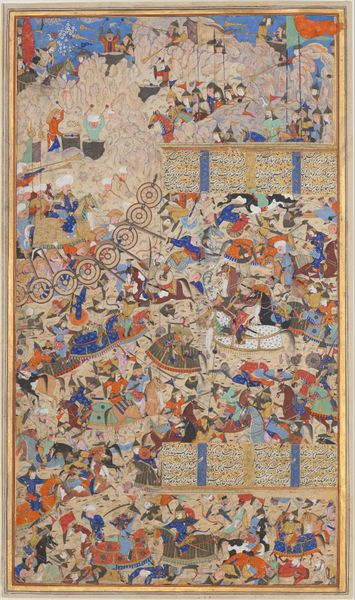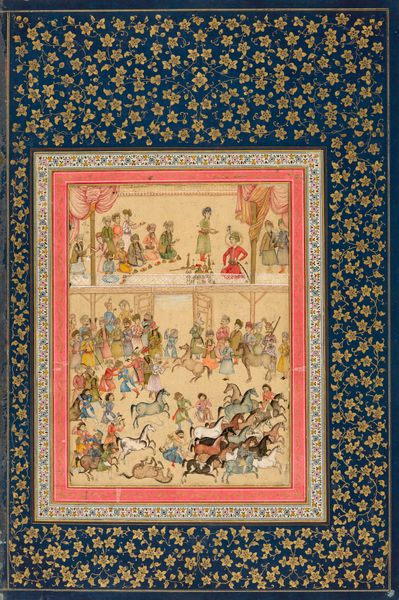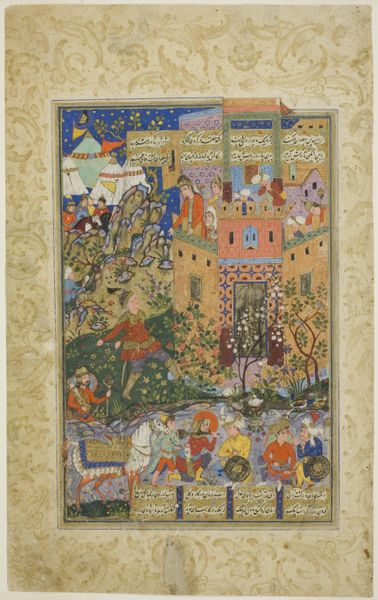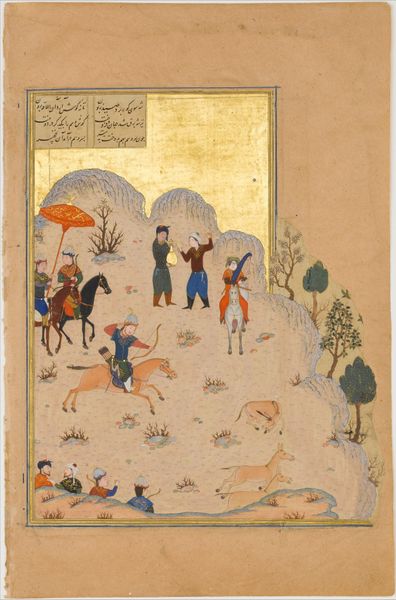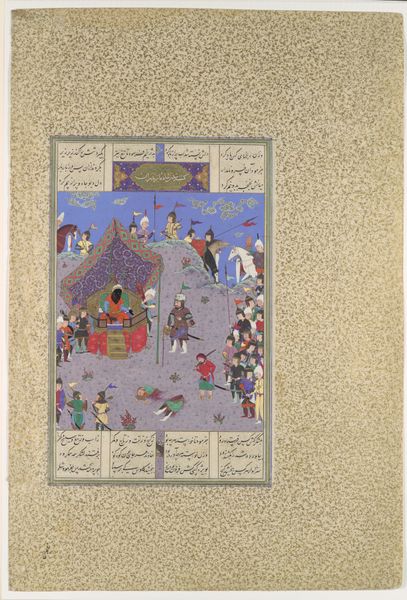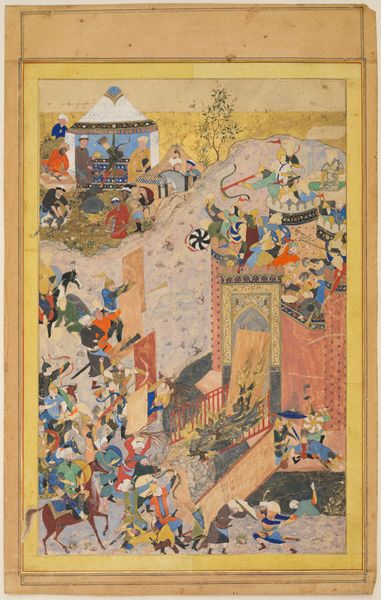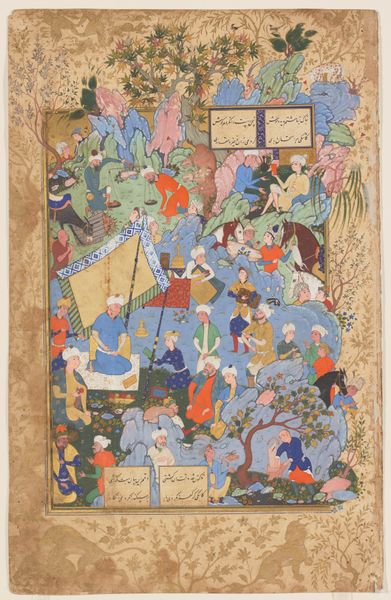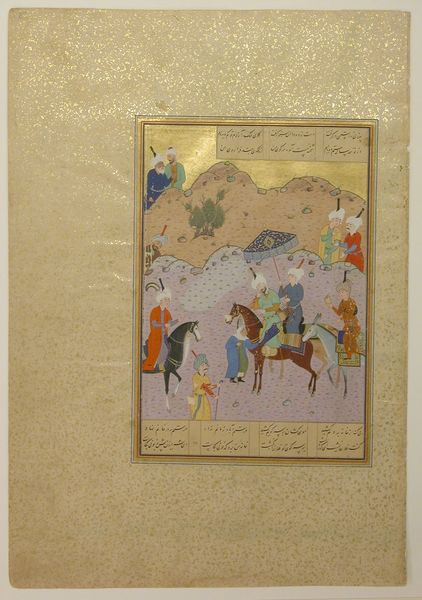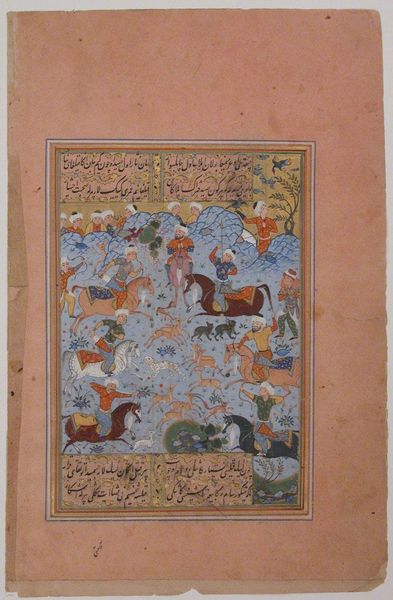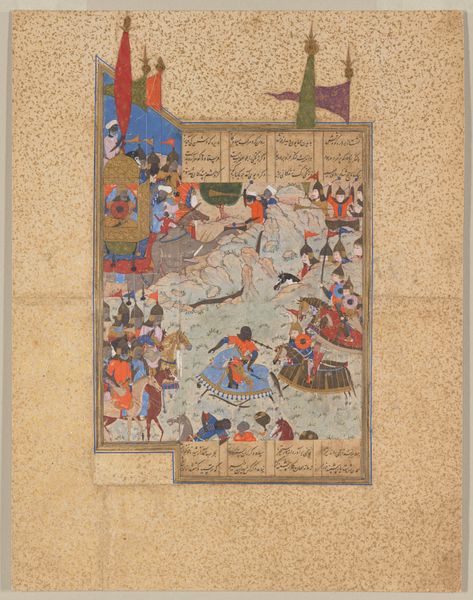
"The Spy Zambur Brings Mahiya to the City of Tawariq", Folio from a Hamzanama (Book of Hamza) 1545 - 1595
0:00
0:00
painting, watercolor
#
painting
#
asian-art
#
watercolor
#
men
#
islamic-art
#
miniature
Dimensions: H. 29 1/8 in. (74 cm) W. 22 1/2 in. (57.2 cm)
Copyright: Public Domain
This painting, "The Spy Zambur Brings Mahiya to the City of Tawariq," was made by Kesav Das, sometime between 1545 and 1630 for the Hamzanama. Notice the prominent use of the city as a backdrop. Cities, throughout art history, often symbolize civilization, order, and the collective human experience. Yet, here, the city is fragmented, almost dreamlike. The architecture, though detailed, seems to defy a singular perspective, evoking a sense of unease. Consider how the motif of the city appears in ancient Mesopotamian art, where ziggurats represented a connection between the earthly and divine realms. Over time, the city evolved in art to reflect societal changes, from the idealized urban landscapes of the Renaissance to the chaotic metropolises of the modern era. Here, the city becomes a stage for human dramas. The act of bringing someone into a city isn't merely a physical relocation; it is a psychological crossing, a transformation fraught with potential and peril, engaging us on a deep, subconscious level.
Comments
No comments
Be the first to comment and join the conversation on the ultimate creative platform.
